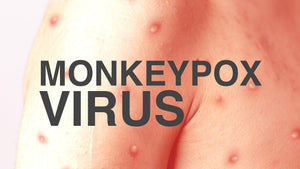
Why PDS Sutures Can Be A Game Changer for Your Establishment
Polydioxanone suture (PDS) is a synthetic suture material known for its high-absorbing properties. Made from polyester poly (p-dioxanone), it provides the most enduring absorbable monofilament wound support available in the market today. As compared to other synthetic absorbable suture materials, wound support is more enduring, therefore having PDS sutures at your medical establishment could be your wisest investment. PDS sutures are made using polymerizing para dioxanone monomer for extra wound support for up to 50 days. Such sutures are known to provide greater strength and commendable pliability.
The monofilament structure of PDS sutures aids exceptional knot security and handling properties. The sutures maintain tensile strength of 80% at 2 weeks and 44% at 8 weeks. PDS Sutures continue to provide wound support for up to 42 days, even though the tensile strength reduces to 70% after 14 days and 25% after 42 days. With a number of benefits over alternate options, medical practitioners around the globe consider PDS sutures a reliable choice.
PDS suture is of special advantage in situations where an absorbable suture combined with extended wound support (up to six weeks) is recommended. PDS sutures are specially formulated with the aim to provide effective wound support and predictable absorption time, most vital for a lengthy healing process. They are of ideal use in the case of the gastrointestinal tract, subcuticular, sheath closure, pediatric cardiovascular surgery, general surgery, and general orthopedic surgery.
Medical equipment suppliers would advise every buyer to be well aware of its ideal usage to reap maximum benefits. PDS sutures are recommended for soft tissue approximation and pediatric cardiovascular tissue – where the growth of tissue is expected to occur. Other common uses include abdominal wall closures, intestinal anastomoses, tendon, and ligament repair. Cases, where PDS Suture is not recommended, are microsurgery, neurological tissues of adult cardiovascular tissues. Additionally, given their highly absorbable nature, you must refrain from using PDS sutures in case there is a requirement for the extended approximation of tissues i.e longer than six weeks. PDS Suture must not be used alongside prosthetic devices including heart valves and synthetic grafts. As per experts, special attention must be given to PDS suture knots to ensure that they remain secure over time.
Especially subcuticular sutures must be placed as deeply as possible to ensure minimization of induration and erythema – usually connected to absorption. You must also note that vaginal mucosal and conjunctival sutures kept in place for long periods can lead to localized irritation.







